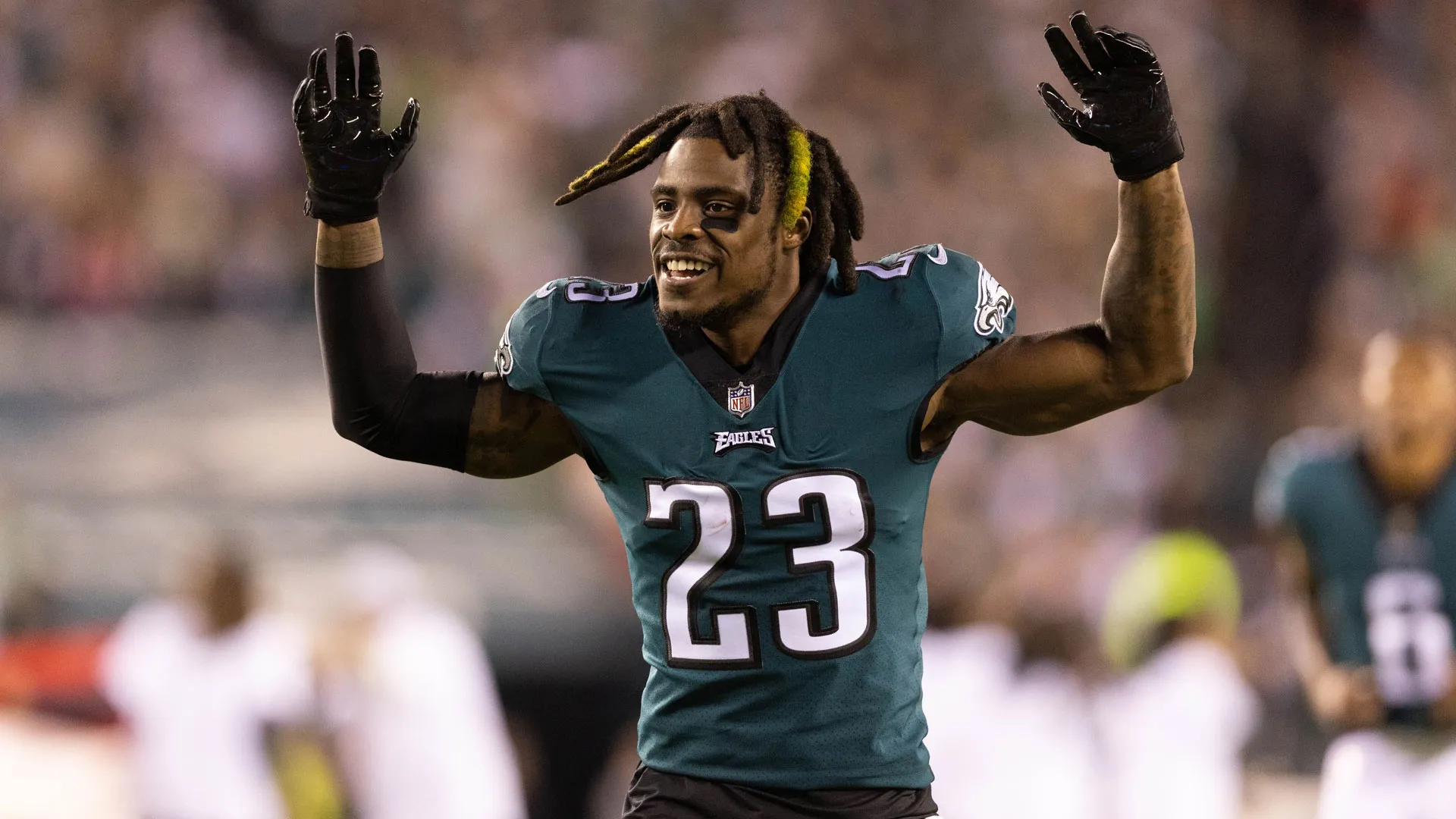Thirty years ago, there was no such thing as free agency.
The story of how NFL players battled for their rights, with a three-time Eagles Pro Bowler in the middle of that fight, has been largely forgotten over the past 30 years, but it’s a fascinating one.
For most of its history, the NFL had no system of free agency. When your contract ran out, you had two options: Take whatever contract your team offered you or retire.
Stay in the game with the latest updates on your beloved Philadelphia sports teams! Sign up here for our All Access Daily newsletter.
In 1989, under growing legal pressure from the players’ union, the league instituted something called Plan B, a limited form of free agency in an effort to appease the players. Plan B let each NFL team protect 37 players, and only the bottom of the roster really had a realistic chance to change teams.
So in the summer of 1992, eight NFL players, including Eagles tight end Keith Jackson, sued the NFL in federal court, claiming Plan B violated federal antitrust law and seeking a true form of free agency.
Four of those eight held out of training camp and into the regular season: Jackson, Browns receiver Webster Slaughter, Lions running back D.J. Dozier and Patriots defensive end Garin Veris.
Jackson had been the Eagles’ 1st-round pick out of Oklahoma in 1988 and made all-pro as a rookie with 81 catches, which remains the most ever by a rookie tight end. He made the Pro Bowl in each of his first three seasons.
NFL
Jackson’s 194 catches was the most in Eagles history through four seasons until Jeremy Maclin and Zach Ertz.
But like so many Eagles of the late 1980s and 1990s, Jackson was growing increasingly disgusted with owner Norman Braman and the organization’s direction, especially after Braman fired Buddy Ryan following a 10-6 season in 1990 and replaced him with Rich Kotite.
So when the opportunity to join the lawsuit came up, Jackson happily signed on and held out of training camp in the summer of 1992. He and the three others held out the first few weeks of 1992, gambling that U.S. district judge David Doty would rule in their favor.
The celebrated trial between the NFL and the players started in June of 1992 in Doty's chambers in Minneapolis. Over the next four months, Doty called two extended recesses to give the two sides a chance to negotiate a settlement, but both times those talks failed to generate any progress.
Finally, on Sept. 10, 1992, Doty issued a landmark 20-page ruling that essentially declared Plan B a violation of federal antitrust law. He granted Jackson and three others immediate free agency and awarded the eight plaintiffs a small monetary damages (an average of about $200,000 each).
The NFL appealed and offered its own form of free agency (Plan C, of course), but Doty quickly rejected the appeal, and a few days later Jackson and the three others were free to negotiate with any NFL team.
They were the NFL’s first true free agents.
Meanwhile, Doty instructed the NFL to create a new form of free agency, one he approved of that allowed free movement for veteran players.
That system closely resembles what we have now, three decades later.
The NFL’s proposal that Doty signed off on gave players free agency after five years, reduced the draft from 12 to seven rounds, allowed teams to protect one franchise player as long as his salary was among the top-five at his position and created the rookie wage scale.
With Jackson now a free agent, a bidding war immediately began.
And on Sept. 28, during halftime of the Monday Night Football game between the Raiders and Chiefs at Arrowhead Stadium, there was Jackson making a surprise appearance on TV and announcing that he was signing with the Dolphins, who had offered him a three-year deal worth $6 million – about $1 million more than the Eagles had offered. The deal made him the Dolphins’ second-highest-paid player, behind Dan Marino.
Within two years, Reggie White, Seth Joyner, Eric Allen, Andre Waters, Keith Byars and others had all abandoned the Eagles in the Great Free Agency Migration. By 1994, Braman had sold the empty husk of a franchise to Jeff Lurie.
Jackson caught 146 passes for 1,880 yards and 18 touchdowns and made his fourth Pro Bowl in three years in Miami. He rejoined White in Green Bay in 1995 and in 1996 made one last Pro Bowl and won a Super Bowl with the Packers.
Subscribe to the Eagle Eye podcast
Apple Podcasts | Google Play | Spotify | Stitcher | Art19 | Watch on YouTube
Jackson retired at 31 after just nine seasons. He was selected to the Pro Bowl five times, caught 441 passes for 5,283 yards and 49 touchdowns. Only seven tight ends have made more Pro Bowls.
Jackson was also an incredible postseason player. His 834 postseason yards set an NFL record for tight ends (since surpassed by only Dallas Clark, Travis Kelce and Rob Gronkowski), and his four 100-yard postseason games remain 2nd-most in NFL history by a tight end, behind only Kelce’s seven.
But for all the Pro Bowls, catches and touchdowns, Jackson’s true legacy is how he and a few others risked their careers and reputations by challenging a multi-billion-dollar corporation. And how their legal triumph created big-money opportunities for countless free agents who’ve followed.
This year’s NFL free agency period begins with the legal tampering period on Monday. Dozens of players will change teams, sign huge contracts, make a fortune.
Every one of them should thank Keith Jackson.


